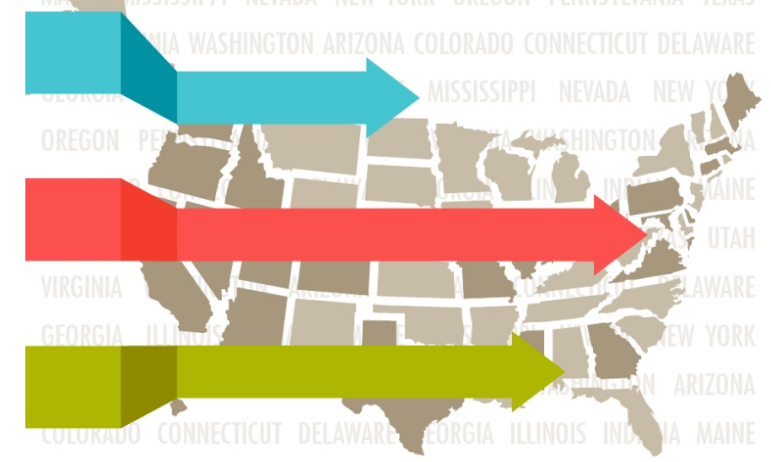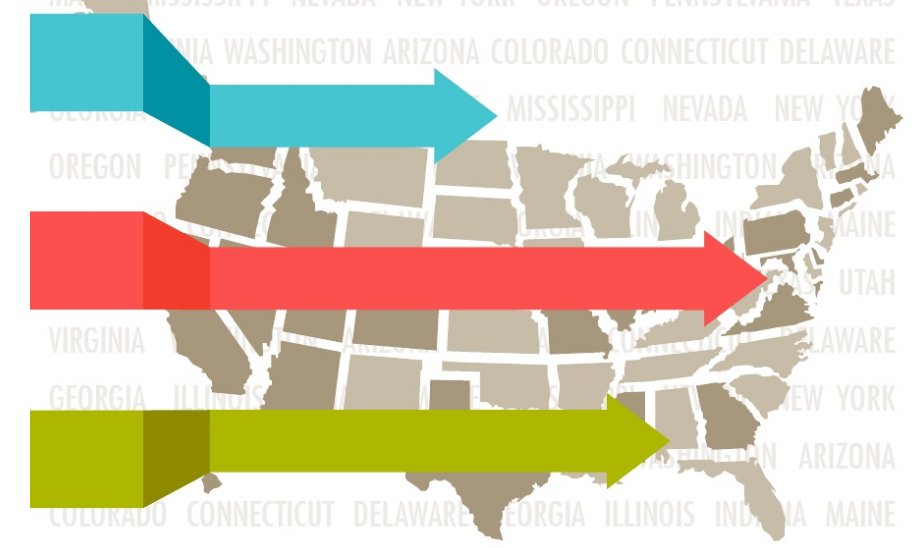
Campaign for Youth Justice
From the Campaign for Youth Justice's State Trends Legislative Victories from 2011-2013 Removing Youth from the Adult Criminal Justice System report.
WASHINGTON – Nearly half of U.S. states have made great strides in the past eight years toward reducing the prosecution of juveniles in the adult criminal justice system or preventing youths from being placed in adult jails and prisons, a report released Thursday found.
The report, by the Washington-based Campaign for Youth Justice -- a national advocacy group that seeks to end the practice of trying, sentencing and incarcerating youth under 18 in the adult criminal justice system –- reviewed reforms among states nationwide.
The report highlights reforms in 23 states that include limiting states’ authority to house young people in adult jails and prisons; raising the age for juvenile court jurisdiction to 18 so older teens are no longer automatically prosecuted as adults; revising laws so youths are more likely to stay in the juvenile justice system instead of being transferred to the adult system; and changing mandatory minimum sentencing laws.
Carmen Daugherty, policy director at CFYJ, pointed out that many of the reforms had been passed unanimously, reflecting the results of research on prosecuting juveniles in the adult criminal justice system or placing them in adult jails and prisons.
“We know that a lot of research and data have come out to show that past policies didn’t work to increase public safety or reduce juvenile crime,” Daugherty told JJIE.org.
“Policymakers are really taking into account the research, that data that is now available, in really realizing that the past practices of treating youths as adults did not work.”
The report notes many states enacted harsh laws in the 1980s and 1990s aimed at cracking down on youth crime by making it easier for young people to be prosecuted in adult criminal courts.
Despite juvenile justice reforms, the report said, about 250,000 juveniles are tried in adult courts annually and nearly 100,000 youths are paced in adult jails and prisons each year. And half the states have undertaken no juvenile justice reforms, the report said.
Jessica Sandoval, CFYJ’s vice president and deputy director, said the public remains largely unaware that 95 percent of juveniles tried in adult courts nationwide are non-violent offenders.
“We don’t think the public is aware of it mostly because of the news that we see highlighting the most heinous crimes but not the kid who … gets in a schoolyard fight and gets charged as an adult,” Sandoval told JJIE.org.
Despite the lack of progress in many states, the CFYJ officials said they’re heartened by reforms that have taken place.
The officials point out research showing youths placed in the adult criminal justice system have a much higher rate of recidivism than those in the juvenile system and that youths are 36 times more likely to commit suicide in an adult jail than in a juvenile detention facility. And the U.S. Supreme Court has noted research showing young people’s brains are still developing and that they lack the maturity of adults.
Among the reforms highlighted in the report:
- Eleven states – Colorado, Idaho, Indiana, Maine, Nevada, Hawaii, Virginia, Pennsylvania, Texas, Oregon and Ohio – have enacted laws limiting states’ authority to house youths in adult jails and prisons.
- Four states – Connecticut, Illinois, Mississippi and Massachusetts – have increased the age for juvenile court jurisdiction. This means older teens are no longer automatically tried in adult criminal courts.
- Twelve states – Arizona, Colorado, Connecticut, Delaware, Illinois, Nevada, Utah, Virginia, Washington, Ohio, Maryland and Nevada – have revised laws on the transfer of youths to the adult criminal justice system, making it more likely young people will remain in the juvenile justice system.
- Eight states – California, Colorado, Georgia, Indiana, Texas, Missouri, Ohio and Washington – have changed mandatory minimum sentencing laws. Among other things, the changes take into account the differences in brain development between youths and adults and allow for post-sentencing review for young people facing juvenile court sentences of life without parole.
“We are finding that states are moving away from prosecuting youths in the adult criminal justice system and from placing youths in adult jails and prisons,” Sandoval said. “We think that there’s work to do obviously. But we think this is a good direction we’re heading in.”
Tracy McClard lobbied hard for the reforms in Missouri. She did so in memory of her son, Jonathan McClard, who hanged himself in a Missouri prison in January 2008, three days after his 17th birthday -- and after a month of being held in solitary confinement for placing his hands in his lap, violating prison rules, during a visit from his mother.
Jonathan was 16 when he was tried as an adult, charged with first-degree assault with a deadly weapon in the shooting of a youth who was dating Jonathan’s ex-girlfriend -- and who he believed had threatened to harm her. The victim survived the shooting.
Juvenile justice officials who reviewed Jonathan’s case concluded he could be rehabilitated and recommended to a judge that he be placed in a juvenile facility offering education and rehabilitation programs under the state’s dual jurisdiction program. The program allows youths to receive a suspended adult sentence and be placed in a juvenile detention facility.
Among other things, “Jonathan’s Law,” named for the teen, requires judges to state in writing why they reject Division of Youth Services recommendations that a youth be placed in a juvenile facility under the dual jurisdiction program.
The law also raises the age that youths must be considered for dual jurisdiction from 17 to 17 years and six months. (In Missouri, 17-year-olds are tried as adults automatically.)
Jonathan’s mother founded Families and Friends Organized to Reform Juvenile Justice, which urged legislators to approve the law and continues to seek juvenile justice reform.
“The general public really does not know what we do to kids when they get arrested, and policymakers don’t know what we do to these kids,” McClard said.
Michele Deitch, a professor at the Lyndon B. Johnson School of Public Affairs at the University of Texas at Austin, said her research has shown many young people charged with crimes can be rehabilitated through education and treatment.
“So the more we can expose these youths to the rehabilitative-type programs in the juvenile system, the better the outcomes are going to be for the youths and, as a result, for the community,” Deitch told JJIE.org.
“It improves public safety. It reduces the number of victims. It reduces the chance that these kids are going to ultimately be repeat criminals or end up in the adult system and a burden to society in that way.”
Other research by Deitch helped persuade lawmakers to enact a 2011 law enabling those youths under 17 tried as adults to be held in a juvenile facility rather than an adult jail while awaiting trial.
“It’s a very poor fit to put children in adult facilities where they are at physical risk and their mental health is at risk and where the programs and services that are offered are just completely inappropriate for this age group,” Deitch said. “Jails are not equipped to provide children with education or treatment or services.”
She noted youths housed with adults are at high risk of being sexually or physically assaulted and if they’re placed in solitary confinement away from adults, it causes psychological harm and increases their risk of suicide.
